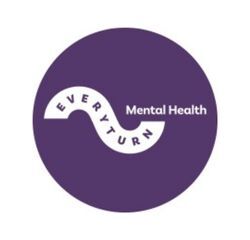At Everyturn Mental Health, we know that effective mental health support focuses on the whole person, not just their diagnosis.
The reality is that too many people are still struggling to get the help they need, when and where they need it. Long waiting lists, limited availability, and inequalities across neighbourhoods are real barriers to mental and physical support. And for people managing their conditions alongside dealing with housing insecurity, the cost-of-living crisis, and poor mental health, the system can feel fragmented and overwhelming.
By promoting access and innovation for everyone, digital tools are already transforming the way people find help. From online therapy to digital triage for services, technology is helping people access support sooner, with more flexibility and the right level of care for them, in ways that better fit around their lives.
Used in the right way, digital innovations also have the power to ensure earlier interventions, removing barriers (such as time, cost, and stigma) and offer personalised, responsive care that helps people manage better in the future. For some, that means getting help without needing to travel, take time off work, or face the stigma that people still feel around seeking mental health support.
This isn’t about replacing face-to-face care, it’s about enhancing what's available by making it more accessible for those who need it most. At Everyturn, we design digital support to extend our in-person services. Whether it’s video calls with a therapist, text-based support, or AI-assisted triage, these tools help us to ensure there’s no wrong ‘front door’ into a face-to-face conversation with a clinician, or dropping in to one of our community-based Safe Havens.
Our aim is to make mental health support services more accessible, without losing the heart of what makes it effective: empathy, understanding, and trust. And by working on new technologies that allow different parts of the health care system to share information more easily and securely, we reduce the need for people to repeat their story again and again.
Of course, none of this matters if we leave people behind. Digital innovation only works when it’s inclusive. We must never let it become another barrier to support.
For us, that means working with the people we support to agree how these tools will be implemented. Listening to what they need to make sure any new digital innovations improve, rather than replace, the human relationships at the heart of mental health support.
By ensuring support is personalised, inclusive and compassionate, we’ll continues to ensure no one struggles alone.
Join Adam Crampsie at HETT Show this October
Don’t miss the chance to hear Adam Crampsie discuss the future of mental health care at HETT Show 2025. Join the panel session, Improving Access to Digital & Innovations for Whole-Person Care in Mental Health, to explore how digital tools, community delivery, and data-driven prevention are breaking barriers, supporting underserved populations, and creating more compassionate, inclusive care. The session takes place on 7th October 2025, chaired by Adam, with insights from leading experts across NHS and community services.
%20(1).png?width=500&height=58&name=HETT%20insights%20logo%20RGB-04%20(1)%20(1).png)



